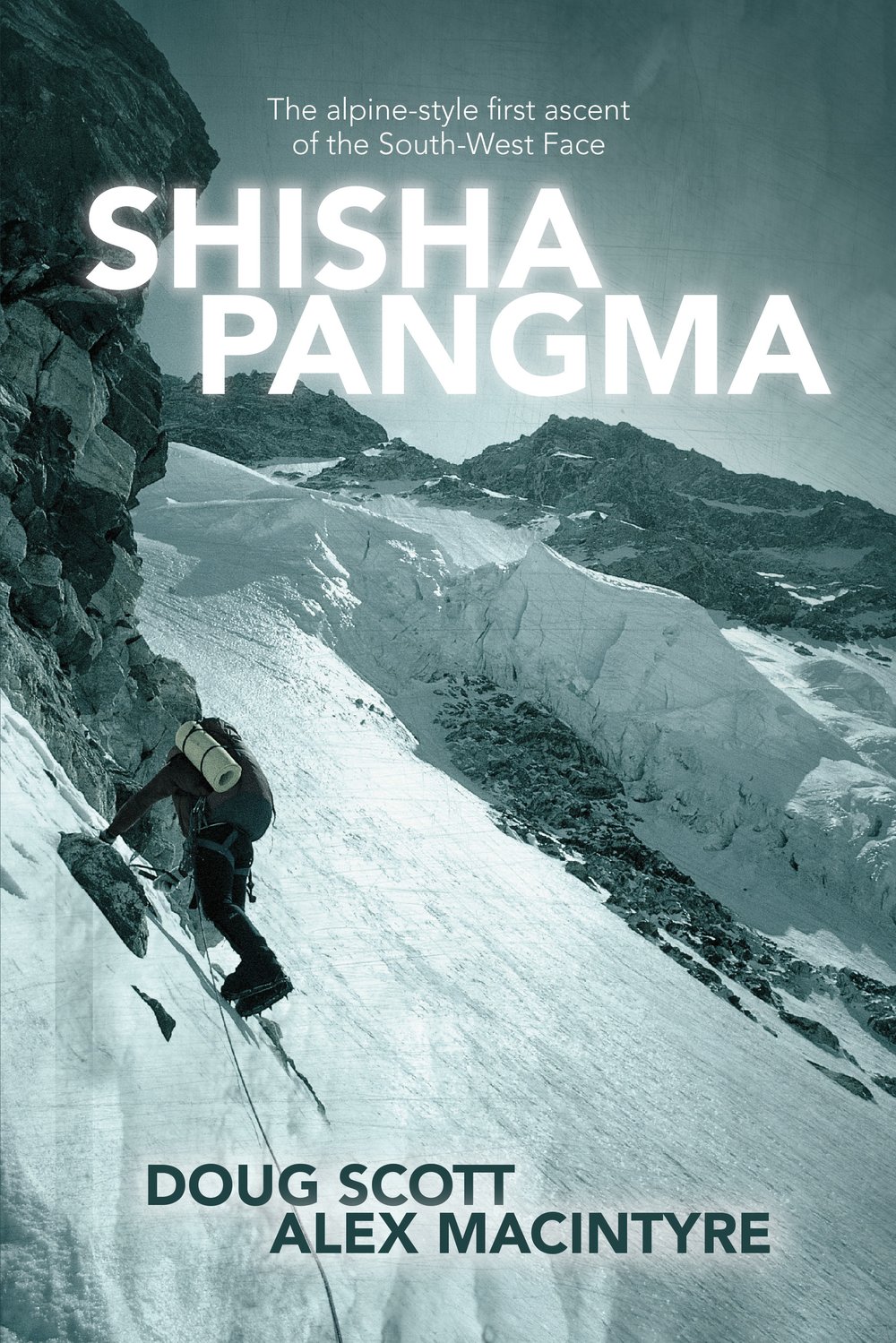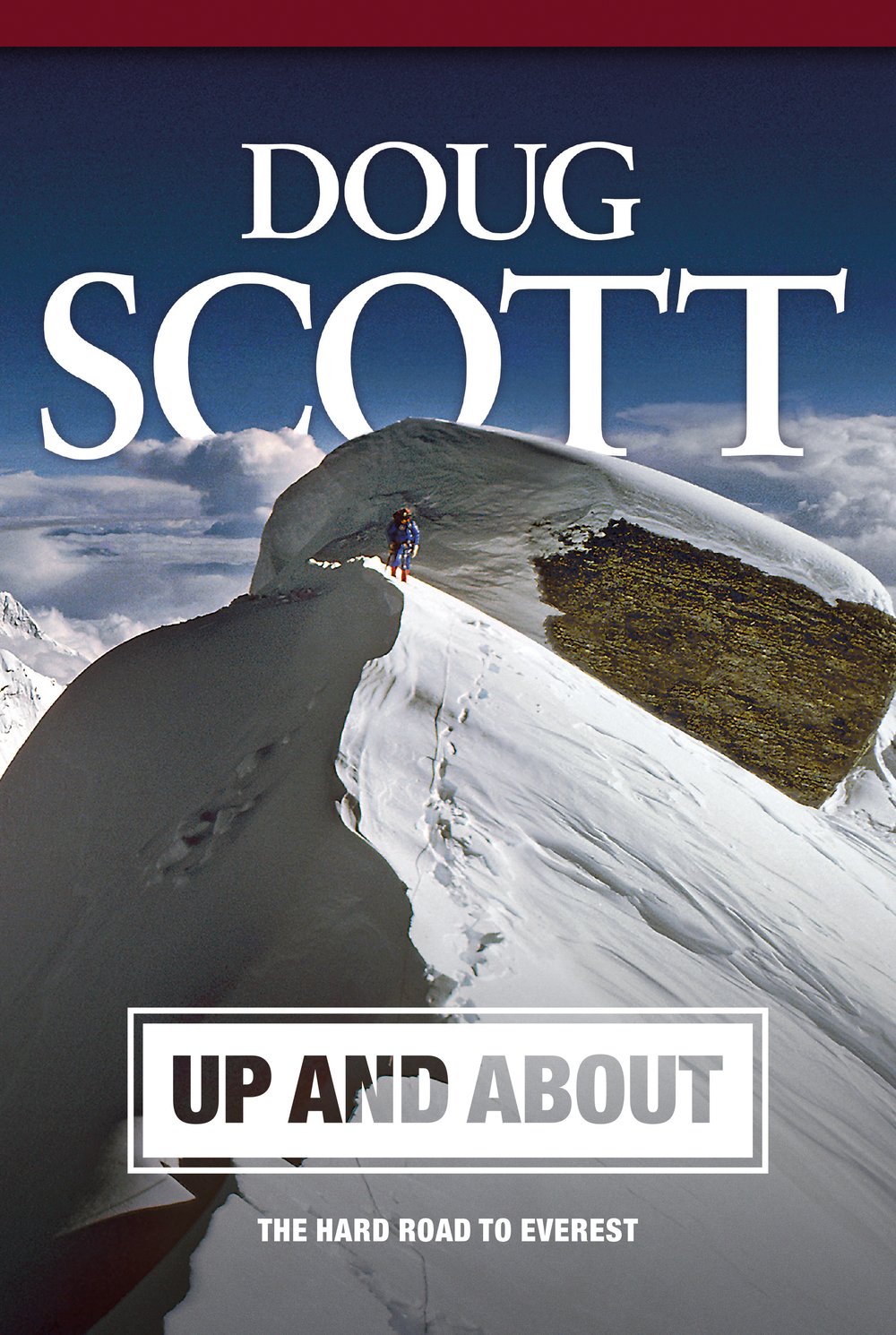Shisha Pangma
The alpine-style first ascent of the south-west face

In 1982, following the relaxation of access restrictions to Tibet, six climbers set off for the Himalaya to explore the little-known Shishapangma massif in Tibet. Dealing with a chaotic build-up and bureaucratic obstacles so huge they verged on comical, the mountaineers gained access to Shishapangma's unclimbed South-West Face where Doug Scott, Alex MacIntyre and Roger Baxter-Jones made one of the most audacious and stylish Himalayan climbs ever.
First published in 1984 as The Shishapangma Expedition, Shishapangma won the first ever Boardman Tasker Prize for Mountain Literature. Told through a series of diary-style entries from all the climbers involved, Shishapangma reveals the difficult nature of Himalayan decision-making, mountaineering tactics and climbing relationships. Tense and candid, the six writers see every event differently, reacting in different ways and pulling no punches in their opinions of the other mountaineers – quite literally at one point. Nonetheless, the climbers, at the peak of their considerable powers and experience, completed an extremely committing enterprise. The example set by their fine climb survives and several new routes (all done in alpine style) have now been added to this magnificent face.
For well-trained climbers, such ascents are fast and efficient, but the consequences of error, misjudgement or bad luck can be terminal and, sadly, soon afterwards two of the participants were struck down in mountaineering accidents - MacIntyre hit by stonefall on Annapurna's South Face and Baxter-Jones being caught by an ice avalanche on the Aiguille du Triolet. In addition their support climber, Nick Prescott, died in a Chamonix hospital from an altitude-induced ailment. Shishapangma is a gripping first-hand account of the intense reality of high-altitiude alpinism.

Born in 1941, Doug Scott began climbing at the age of 12 at Black Rocks in Derbyshire. He progressed to the cliffs of Ogwen in Snowdonia and became a climbing instructor. Aged 17 he completed his first Alpine season. In the 1960s Doug began new routing on the Derwent Valley limestone, putting up many lines such as Cataclysm and Highlight, and in 1965, aged 24, went on his first expedition to the Tibesti Mountains. Doug Scott made 42 expeditions to the high mountains of Asia. He reached the summits of 40 peaks. Apart from his climb up the South West Face of Everest with Dougal Haston during Chris Bonington's Expedition of 1975, he made all his climbs in lightweight or Alpine style, without the use of artificial oxygen. He reached the highest peaks on all seven continents – 'the seven summits'. He was a president of the Alpine Club and was made a CBE in 1994. In 1999 he received the Royal Geographical Society Patron's Gold Medal, and in 2000 made the first ascent of Targo Ri, 6,572 metres, in Tibet. Up until his death in December 2020, he continued to climb, write and lecture, avidly supporting the charity Community Action Nepal.
Born in 1954, 'Dirty' Alex MacIntyre was one of the legendary early 1970s Leeds University climbers noted for their big hair, lycra tights and habit of calling on another 'youth'. A popular climber, he was a leading figure Alpine climbing's 'front-point revolution' in the 1970s when a group of British climbers pushed standards dramatically higher. Ascents such as The Shroud on the Grand Jorasses were made in a day and formerly-sieged routes such as the Harlin Direct on the Eiger, were climbed in Alpine-style. MacIntyre was a great supporter of Alpine-style ethics, and took them to the Himalaya, where he made several superb ascents and attempts on major objectives - Changabang, Shishapangma and Makalu. Alex MacIntyre died in 1982. He and Rene Ghilini were retreating from a fine attempt on the South Face of Annapurna where a solitary falling stone struck him square on the head and knocked him down 800 feet. A memorial stone at Annapurna Base Camp reads: 'It is better to live one day as a tiger than a hundred as a sheep.'

